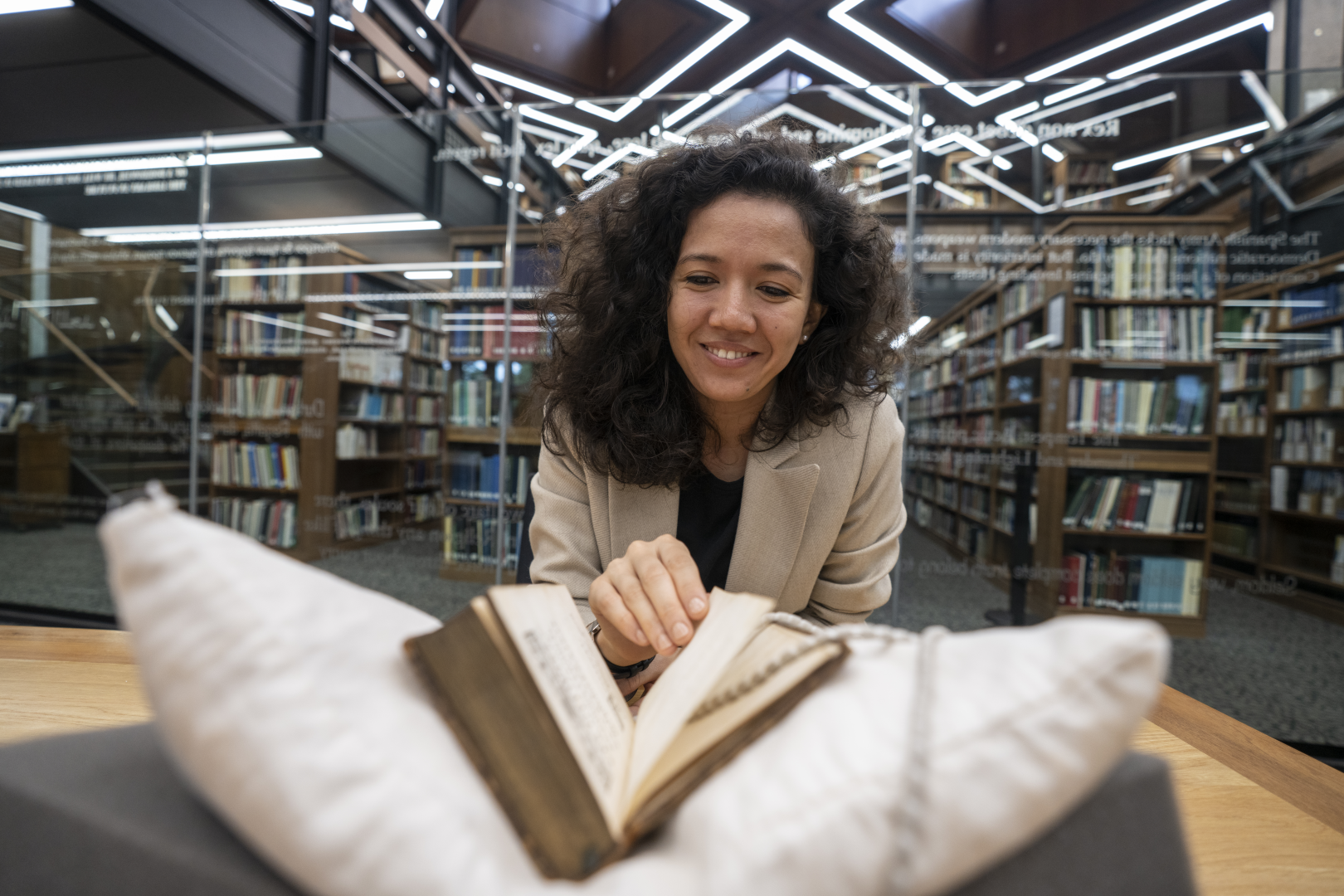Teaching with Archives and Special Collections

What teaching and learning experiences we offer
Durham University’s archives and rare books are available to anyone with an interest in learning more about people, places, and events of the past. We are always keen to introduce students to the joys of working with primary sources, from facilitating a hands-on class to supporting the creation of digital learning resources.
Our aim is to provide accessible, engaging, and meaningful experiences for students using materials from our collections, with a focus on active learning and the development of a range of transferable skills, such as critical thinking; research ethics; information discovery, analysis, and interpretation.
We have in-depth knowledge of Durham University’s archives and rare book collections. We also bring specialist skills and knowledge to support students, whether it is in medieval Latin, palaeography, history of the book, analytical bibliography, or archival theory and practice. Working closely with our academic colleagues, we facilitate classes in a wide range of subjects.
We offer the following services:
- In-person classes held at Palace Green Library, with a limit of 15 students per class. For groups of over 15 students, we can suggest alternative options
- Digitisation of specific materials that can be linked from module reading lists in Talis or from the module environment in Ultra
- Digital learning resources that are either stand-alone or embedded in Ultra (dependent on staff availability)
How to request up to two separate classes per module if you are based at Durham University
We prefer to receive requests for classes at least six weeks before your requested date using this form or the QR code on this page (DU-access only), to help us plan for your visit. The form allows you to specify if you would like to bring multiple groups
Please note that requests for classes made less than six weeks before your requested date will only be possible if staff and space are available, especially if you are requesting multiple sessions. We recommend therefore that you get in touch with us at the earliest opportunity to avoid the risk of disappointment.
Upon receipt of your request, we will check our availability and aim to get back to you to confirm the date and time within 10 working days. If you are requesting a repeat class that needs reviewing or a class for a new module, we will arrange a meeting with you, either online or in-person, to discuss in more detail your learning goals, possible activities during the class, and what collections would be suitable.
How to request a meeting for a scoping conversation
You may prefer to have a scoping conversation in the first instance, for example if you are interested in developing a new module around our collections. If that is the case, please contact us at asc.teaching@durham.ac.uk and provide us with details of the module and aims for your proposed visit(s). If you know which collection(s) you would like to use during the class or classes, please include this in your email so that we can match you to the right archivist or rare books librarian to discuss your needs.
How to request more than two classes per module
If you are interested in embedding primary sources more deeply into your module and would like students to work with our archives and special collections in more than two classes per module, please get in touch with us via asc.teaching@durham.ac.uk to discuss the options for this.
Please note we may not have the capacity to host a term-long module at Palace Green Library and request that you to get in touch with us to discuss your module proposal before submitting it to your departmental education committee.
How to request the digitisation of specific materials
If you would like specific materials to be digitised for your module, please get in touch with us at pg.library@durham.ac.uk at least six months before the start of the new academic year so that we can plan this with our digitisation team. Digitisation depends on the condition of the materials and occasionally we have to turn down a request for this reason. There may also be legal restrictions.
Once materials are digitised, they will be available as open access IIIF assets via a Mirador viewer. You can these to the Talis reading list for your module like any other resource and they will also be accessible via Discover.


/prod01/prodbucket01/media/durham-university/library-/archives-and-special-collections/75794.jpg)